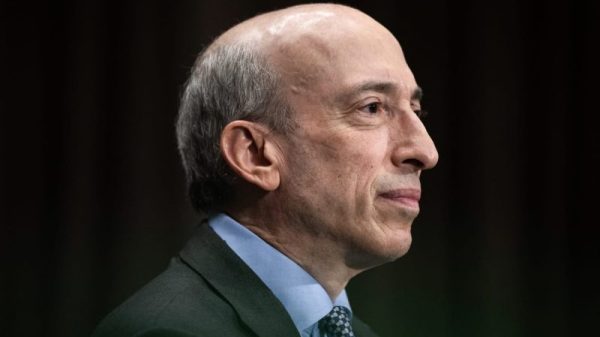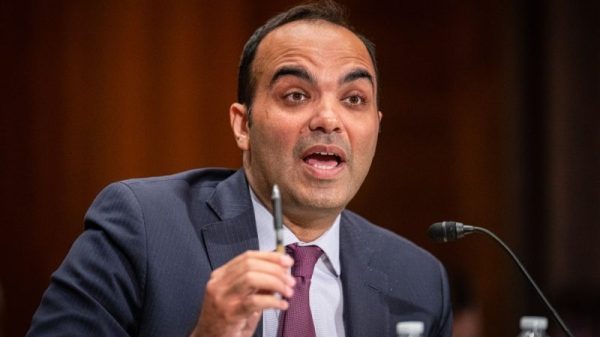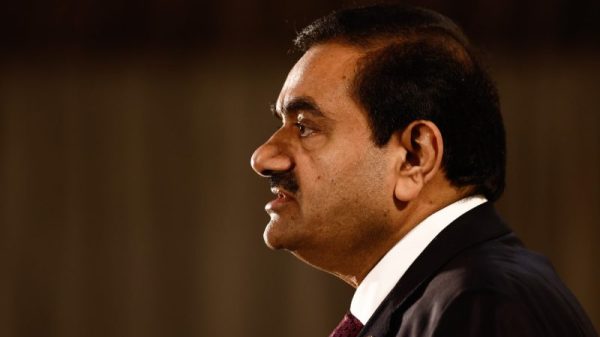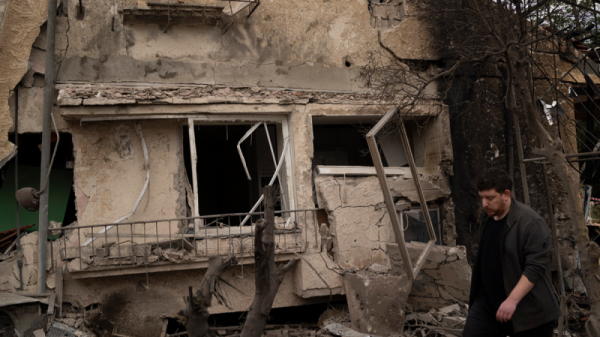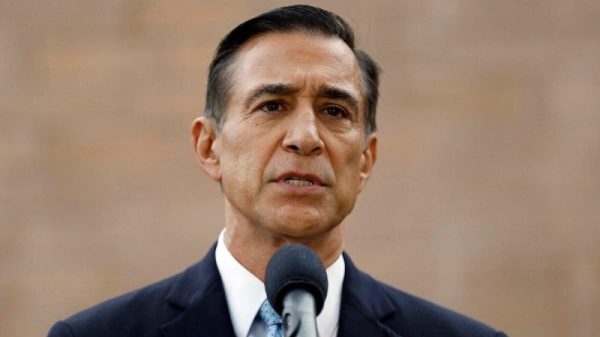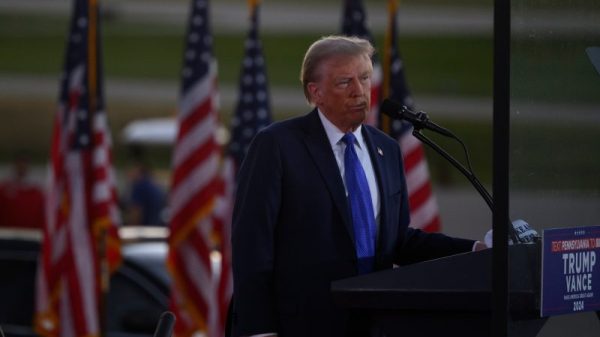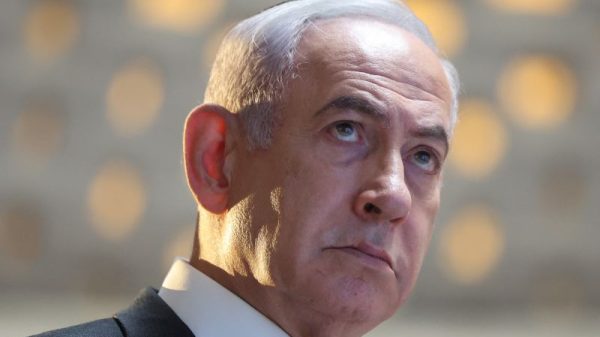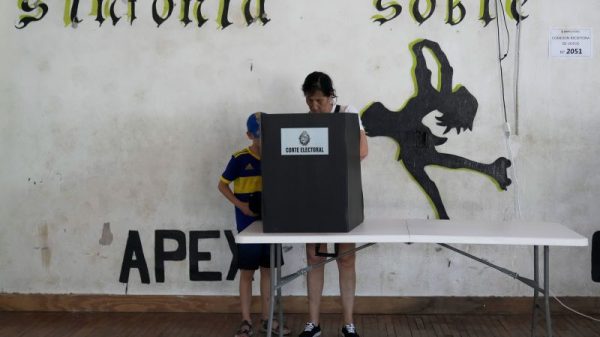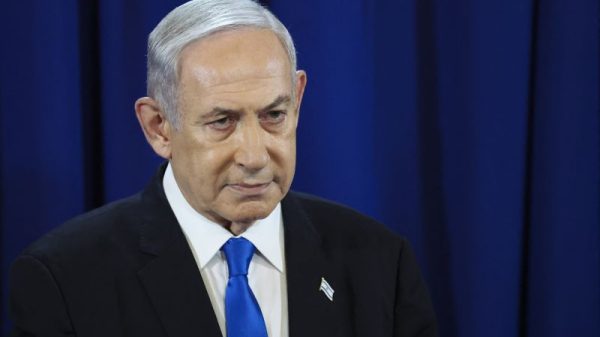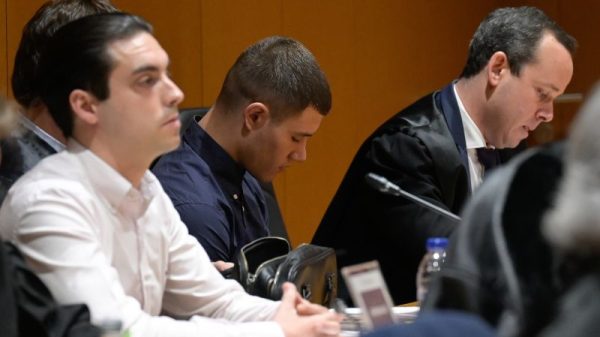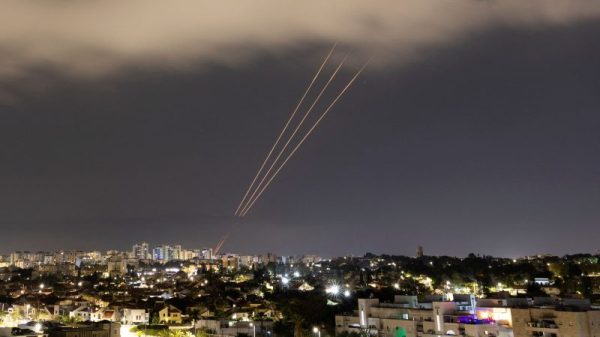Israeli forces launched a raid Wednesday on Gaza’s largest hospital, Al-Shifa, after accusing Hamas of operating from tunnels beneath the vast complex – a claim denied by the militant group and hospital officials.
Thousands of Palestinians are believed to be sheltering in and around the hospital, which the UN said had become the “epicenter” of fighting in the area, trapping vulnerable patients, staff and displaced Palestinians as they run out of medical supplies and fuel.
The hospital’s main building has effectively ceased functioning, with doctors working by candlelight and wrapping premature babies in foil to keep them alive – with some warning the situation inside has become “catastrophic.”
In recent days, the hospital has become a microcosm of the wider war and the rhetoric around it. Palestinians hold up the fighting around Al-Shifa as proof of Israel’s wanton disregard for civilian life in Gaza, while Israel points to the hospital as an example of Hamas’ use of civilians as human shields.
But the decision by Israeli forces to enter the hospital marks a potential escalatory moment in the conflict which began on October 7, when Hamas militants entered Israel, killing more than 1,200 people and taking over 200 others hostage – the largest such attack on Israel since the country’s founding in 1948.
More than 11,000 have since been killed by retaliatory Israeli strikes in Gaza, according to the Palestinian Ministry of Health in Ramallah, which draws figures from the Hamas-controlled territory.
Here’s what we know so far about Al-Shifa and the Wednesday raid.
What happened on Wednesday?
On early Wednesday morning local time, the Israel Defense Forces (IDF) said it was “carrying out a precise and targeted operation against Hamas in a specified area in the Shifa Hospital” in Gaza.
“We were asked to stay clear of the windows and the balconies. We can hear the armored vehicles, they are very close to the entrance of the complex,” he said.
What is Israel claiming?
Israel has repeatedly claimed Hamas is using the hospital complex for military purposes. In a presentation to the media last month, Israeli military spokesman Daniel Hagari accused Hamas of directing rocket attacks and commanding operations from bunkers underneath the hospital building, which he said was linked to the network of tunnels that Hamas has dug underneath Gaza city.
The IDF also published an “intelligence-based” illustrated video of what it claims the Hamas headquarter under Al-Shifa looks like. The video shows a 3D diagram of the hospital, which moves to show an animated network of purported tunnels and operation rooms.
Other hospitals inside Gaza were also being used by Hamas in similar ways, Hagari claimed during the presentation, which included aerial photos, graphics and voice recordings.
Israel has made other efforts to publicize what it says is proof of Hamas’ operations under hospitals. On Monday, the IDF invited news media to visit the Al Rantisi children’s hospital in Gaza City, where Hagari alleged parts of the basement had been a Hamas “command and control center” and may have been used to hold hostages.
The director of hospitals at the Hamas-controlled ministry of health on Tuesday dismissed Israel’s accusations, saying the basement of the Rantisi hospital was used to shelter women and children, not store Hamas weaponry and hold hostages.
How have Palestinians responded?
Hamas, Palestinian health officials and medical workers have also vehemently denied Israel’s claims about Al-Shifa, and condemned Wednesday’s raid.
After the raid began, Palestinian Authority Health Minister Dr. Mai Al-Kaila said it represented “a new crime against humanity, medical staff, and patients,” and warned it could have “catastrophic consequences” for patients and medical staff.
In a statement Wednesday, Hamas blamed both Israel and the US for the raid, claiming that the US had given Israel “a green light … to commit more massacres against civilians” by using Israel’s “false narrative” of Al-Shifa being used as a command center.
The statement also accused the United Nations of failing to defend Palestinians.
What has the United States said?
The White House has backed Israel’s claims, saying Tuesday that Hamas was storing weapons and operating a command node from the al-Shifa hospital in Gaza, citing US intelligence.
“Hamas and the Palestinian Islamic Jihad, PIJ, members operate a command-and-control node from al-Shifa in Gaza City. They have stored weapons there and they are prepared to respond to an Israeli military operation against that facility,” John Kirby, a US National Security Council spokesman, told reporters traveling with President Joe Biden. Kirby presented no evidence to back up his statement.
But Biden also said Monday that hospitals in Gaza “must be protected” and that his “hope and expectation is that there will be less intrusive action” around them.
Why is Al-Shifa so important?
The sprawling medical facility of Al-Shifa, which sits in the western part of Gaza City, was built in 1946 when Gaza was still under British rule. It has long been seen as the backbone of medical services across the besieged Gaza Strip, and has been hit in previous Hamas-Israel conflicts.
As early as Israel’s first war with Hamas in 2008-2009 – almost a year after the militant group seized control of the enclave – Israel had been claiming that Hamas fighters were sheltering in mosques, hospitals and other civilian places to avoid Israeli attacks.
Former Minister of Internal Security and Shin Bet director, Avi Dichter, said in in 2009 that it was “an open secret” among Palestinians living in Gaza that Hamas uses Al-Shifa for its operations, a claim that Hamas repeatedly denied.
The hospital was struck nine years ago during the 2014 Israel-Gaza war, which was strongly condemned by aid and medical organizations. Palestinians blamed the 2014 attack on Israel, while Israel said it was the result of a failed rocket launch by Hamas.
The hospital made headlines a year later, when human rights group Amnesty International published a damning report on Hamas, including allegations that Hamas militants interrogated and tortured people at a clinic in Al-Shifa.
What does international law say about targeting hospitals?
International humanitarian law (IHL) governs the way in which warfare is conducted and seeks to limit the suffering caused. It is designed to give protection to civilians and civilian objects, including medical staff and facilities.
But protection is not unconditional. “They can lose their protection if they are used outside of their humanitarian function to commit acts harmful to the enemy,” Cordula Droege, chief legal officer of the International Committee of the Red Cross, explained in a video Tuesday, adding that using buildings like hospitals to house combatants and weapons can turn civilian objects into legitimate military targets.
Once a hospital has lost its protected status, an attack could be permissible – but the attacking party must give warning before launching a strike. “The purpose of such a warning is to allow those who misuse the hospital to stop the acts harmful to the enemy, or, if they persist, to allow for the safe evacuation of patients and medical staff,” Droege said, noting that this is not always feasible in conflict situations.
The IDF said in a statement on Wednesday that it had warned for weeks that Hamas’s “continued military use of the Shifa hospital jeopardizes its protected status.” The statement added that the IDF had also notified the relevant authorities on Tuesday that all military activities within the hospital must stop within 12 hours.
But this “does not mean there is free license to attack,” said Droege. All strikes are governed by the “principle of proportionality,” which states the attacking party has to ensure the expected harm caused to civilians will not be “excessive” in relation to the expected military advantage. All parties must also take precautions to minimize civilian harm.
While none dispute the horror of such attacks, legal experts are divided over whether Israel’s actions necessarily violate IHL.








